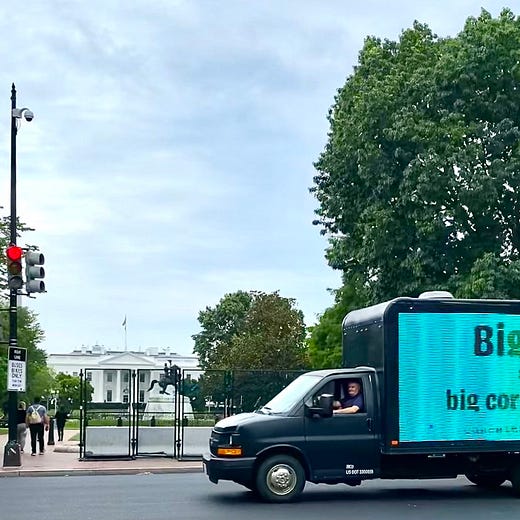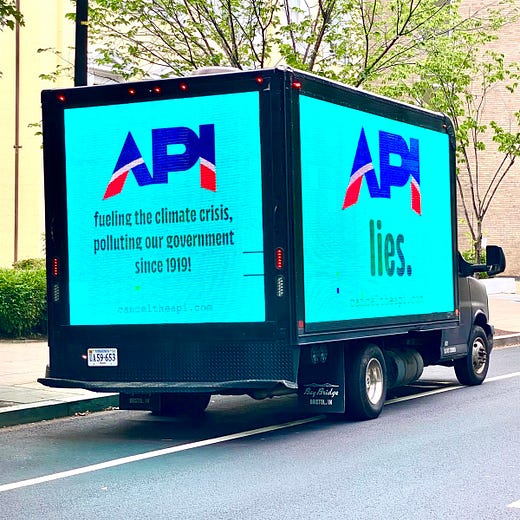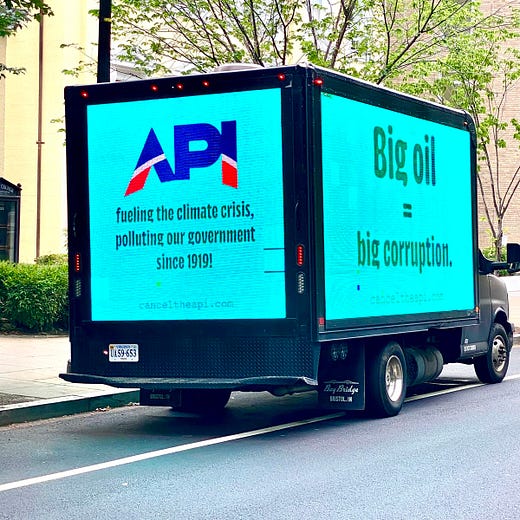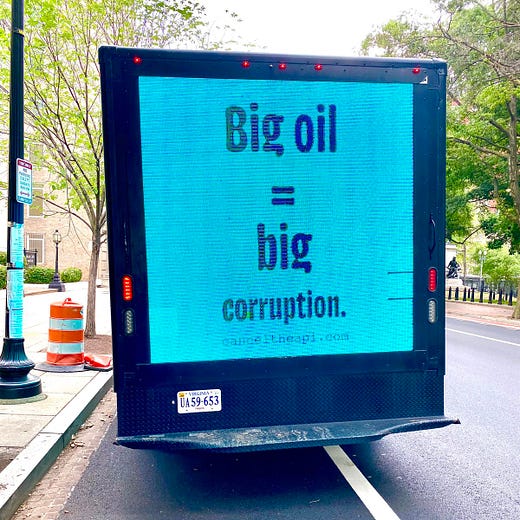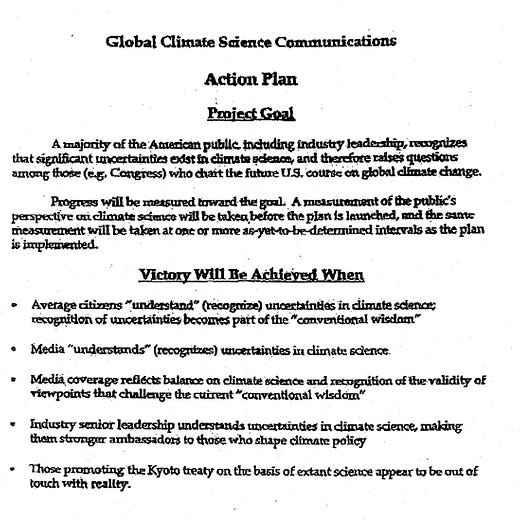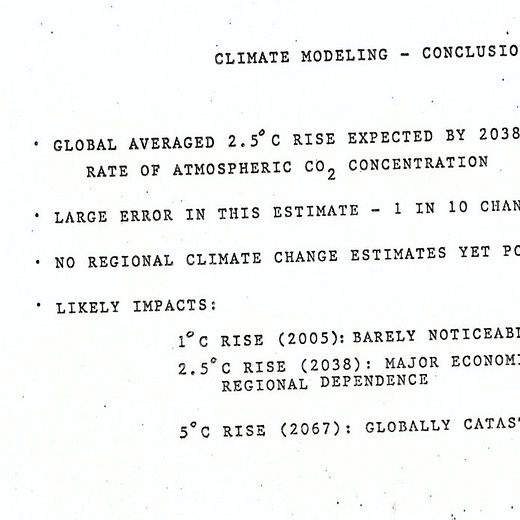Why did the White House meet with Big Oil executives?
Plus, a momentous win for Massachusetts’ consumer fraud lawsuit against Exxon.
Emily Sanders is the Center for Climate Integrity’s editorial lead. Catch up with her on Twitter here.
It was easy to miss, but there was big news in the world of climate accountability lawsuits this week:
A Massachusetts state court issued two rulings denying ExxonMobil’s motions to dismiss a consumer fraud lawsuit from Attorney General Maura Healey that seeks to hold the climate polluter accountable for lying about its products’ dangerous impacts.
The case is the first of its kind to survive a motion to dismiss, bringing it closer to becoming the first of several climate liability lawsuits on behalf of 26 communities to reach trial — another indication that Exxon’s time to escape accountability for its actions is up.
“To this day, Exxon continues to promote its fossil fuel products to consumers as good for the environment and misleads investors that demand for fossil fuels will remain strong for the foreseeable future,” AG Healey added. “It's time they are held accountable.”
And on that note: Climate arsonists don’t deserve a seat at the negotiating table!
While we wait for more details from yesterday’s infrastructure agreement and what it might mean for climate and clean energy, one unnerving development at the White House is raising questions.
National Climate Advisor Gina McCarthy recently hosted two meetings, on March 22 and June 9, between White House officials and leading representatives of the oil and gas industry, including the American Petroleum Institute.
That is, of course, the same industry executives whose products and deception have played a primary role in the climate crisis and efforts to block action that would curb the damage.
Public details and news coverage of those meetings has been scarce, other than a readout from the first meeting, which the White House said was convened to discuss “shared priorities around addressing the climate crisis.”
The meetings came as the Biden administration weighed its options on reducing the greenhouse gas emissions destroying our planet — involving decisions on oil and gas leases, electricity standards, emissions regulations, and the continued construction of pipelines like Line 3 in Minnesota, which the administration backed this week despite its previous commitments to climate and environmental justice.
So what did White House officials and leading polluters talk about behind closed doors?
Whatever the answer may be, giving Big Oil an exclusive audience to decision makers at the highest levels of the federal government is deeply concerning on many levels. Here’s why:
History shows that API and its members can’t be trusted to tell the truth on climate.
Instead of warning the public about the dangers they knew their products would cause, API helped bankroll and execute the most consequential corporate deception campaign of all time to keep the nation hooked on fossil fuels. Inspired by Big Tobacco, API and its members spread climate denial through front groups and political lobbying, stealing crucial decades when deliberate action could have kept the world within safe climate limits and saved communities from spending billions in order to survive a warming world.
But the world’s largest oil and gas trade association didn’t stop there: they’ve repeatedly fought to block climate policy that would threaten their business as usual. In 2009, API led and funded rallies in 20 states targeting Senators to oppose the last major piece of climate legislation we’ve seen — the Waxman-Markey bill, which the Senate ultimately did not vote on. API has also opposed the EPA’s work to regulate greenhouse gas emissions under the Clean Air Act, and even targeted public school students with their climate disinformation campaigns.
This isn’t news to Gina McCarthy, who, when asked about Big Oil’s role in the fight against climate change by Axios, replied that "Fossil fuel companies have been, you know, spending a good deal of money early on, on fighting the idea that climate change was real."
Still, she added: "I think we even see them recognizing now that the future is different than it used to be and their way of making money is not going to be the same."
But the industry’s penchant for twisting the truth and blocking action hasn’t come to an end.
“This industry's entire strategy is to talk a big game about how they're committed to action, while continuing to undermine the government's ability to tackle the crisis,” wrote Jamie Henn, director of Fossil Free Media and co-founder of 350.org, in an email. “They love nothing more than being invited to White House summits and being treated as a serious partner. It gives them the cover to go out and sabotage any action that moves forward.”
API and its member organizations face a growing number of lawsuits over their ongoing deception on climate.
Since last year, Minnesota Attorney General Keith Ellison, Delaware Attorney General Kathy Jennings, and the coastal communities of Hoboken, New Jersey, and Annapolis, Maryland, and Anne Arundel County, Maryland, have all filed lawsuits in state court seeking to hold API accountable for its decades-long “campaign of deception” to mislead consumers and the ensuing climate damages those communities have suffered.
As these lawsuits make clear, API’s deception continues to this day — but it has evolved from outright climate denial to a savvier strategy of “greenwashing” ad campaigns, ranging from a Super Bowl ad to website articles such as “Five Ways We’re Helping to Cut Greenhouse Gas Emissions,” which paint API as helping to solve the climate crisis they knowingly caused.
The real purpose of those advertisements? As described in the lawsuit from Anne Arundel County: “by obfuscating the reality that fossil fuels are the driving force behind anthropogenic climate change, they are designed to increase consumers’ use of fossil fuels in order to advance API’s core mission of growing its member companies’ oil and natural gas business.”
On the campaign trail and in office, the Biden administration promised to support efforts to hold Big Oil accountable for that deception. It seems equally important that policymakers within the administration don’t give an audience to the industry’s propaganda.
We don’t let tobacco and opioid executives weigh in on public health negotiations. Big Oil shouldn’t have a say in policy to address the crisis they caused either.
Deception spotlight
In this episode of Subvert, we hear from Patti Lynn, Corporate Accountability's Executive Director, about the organization’s involvement in developing the Global Tobacco Treaty in the late '90s. At the heart of that organizing is understanding the corporate playbook—a set of deceptive tactics that Big Tobacco, as well as Big Oil and Gas, still use today to evade accountability for the harms they've caused.
ICYMI News Roundup


